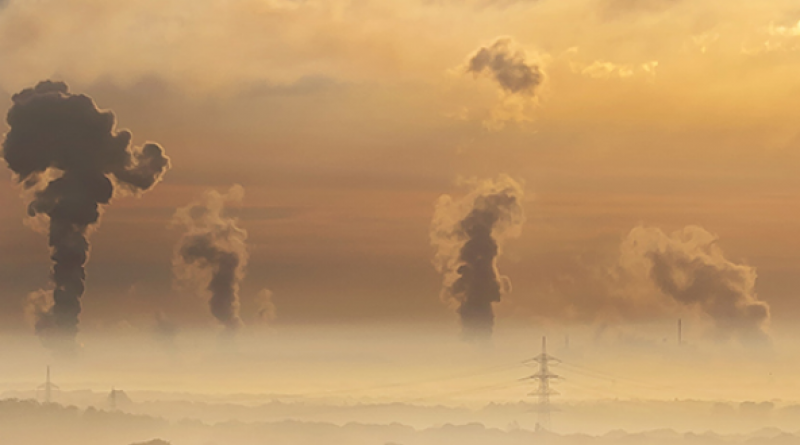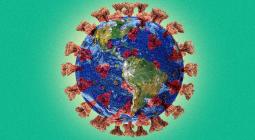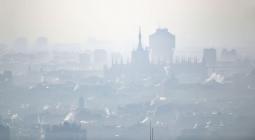While you were taking care of your family, EPA was giving polluters a free pass.

We’ve all heard the line. Never waste a crisis.
Well, the nation’s top polluters took it to heart this week.
Because while the rest of us were taking care of our families and anxiously watching the news on the stimulus bills, fossil fuel companies and other industries were lobbying the Environmental Protection Agency and other federal agencies for a free pass to pollute the environment. Because, you know, the coronavirus.
The sad news is that they won, for the moment. Yesterday, EPA issued a blanket waiver so polluters no longer have to report their compliance with environmental laws. This order covers the entire nation and most polluting industries. Oh, and it’s for an indefinite time.
This is worth repeating: While the country is dealing with an unprecedented health crisis and millions are out of work, EPA gave polluters a free pass to dump whatever chemicals they want into the air we breathe and the water we drink.
It simply boggles the mind. The order is insane.
But if your only measure of the health of the country is the stock market, it makes perfect sense. Businesses are hurt by the coronavirus, polluters argued, so let’s make it easier for them to operate.
BAD ACTORS WILL USE THIS LICENSE TO POLLUTE PROLIFICALLY
The fact of the matter is that this order is dangerous and gives bad actors with recent incidents of pollution free reign.
As just one example, the Sinclair Oil Refinery in Sinclair, Wyoming has a lengthy history of significant Clean Air Act violations with three informal and two formal enforcement actions in five years and has racked up $1.6 million in penalties from EPA cases. Under the order, Sinclair Oil can use the EPA’s license to pollute to continue its violations penalty-free just by papering it over.
Violators of federal environmental laws are all over the country and they are prolific. In Boulder County, Colorado alone, the EPA lists 96 facilities with current violations, including 50 facilities with significant violations. Total penalties in that county in the last five years have been over $7 million. Over the agency’s national purview, there are 86,443 facilities with current violations, 26,738 with significant violations.
As long as this indefinite order is in place, we can safely expect these polluters to dangerously pollute and pollute without consequence.
WAIVING CLEAN AIR ACT COMPLIANCE WORSENS THE COVID-19 CRISIS
Here’s something EPA won’t tell you: the order will make some of us more vulnerable to the coronavirus.
One of the groups most at risk of severe illness or death fall from the coronavirus are people with pre-existing conditions like asthma, emphysema, or chronic bronchitis.
So how does the order threaten this group?
Let’s take those with asthma as an example. Allowing power plants and industry to pollute without limits opens the door to increasing particulate matter pollution as well as SO2 and NO2, which can trigger asthma attacks.
This increased pollution alone can severely sicken asthma patients. But COVID-19 will make it even worse. According to the CDC, “[p]eople with asthma may be at higher risk of getting very sick from COVID-19. COVID-19 can affect your respiratory tract (nose, throat, lungs), cause an asthma attack, and possibly lead to pneumonia and acute respiratory disease.”
The danger doesn’t end there. If more asthma attacks mean more patients heading to the hospital, it means more people not at home and in danger of contracting the virus at the hospital. And when they get there, they could find a hospital already overwhelmed with COVID-19 cases and unable to provide proper treatment or access to equipment.
This is not a hypothetical danger. We’re already seeing reported shortages of asthma inhalers due to COVID-19.
The bottom line: This irresponsible order puts those most vulnerable to the COVID-19 virus at even greater risk. It’s a chance we can’t afford to take.
THE ORDER IS OVERLY BROAD AND UNECESSARY
This blanket EPA waiver for polluters is also simply unnecessary. We know industry lobbyists have pushed hard for this, but if staff at facilities can be safe enough to pollute, then staff should be able to comply with environmental rules in a safe manner as well.
Waivers during disasters are something the EPA has issued routinely in the past. And that makes sense. Emergencies mean we all need to be flexible. But there is no reason it can’t be done on an industry-by-industry or a company-by-company basis. Or, preferably, on a case-by-case basis during this crisis.
Another head-scratcher is that the order itself creates requirements where polluters need to record their non-compliance. The order states that noncompliance needs to be carefully documented. Polluters need to “[i]dentify the specific nature and dates of the noncompliance” and “[i]dentify how COVID-19 was the cause of the noncompliance, and the decisions and actions taken in response, including best efforts to comply and steps taken to come into compliance at the earliest opportunity….”
So here’s a question. If a workplace needs to record all noncompliance in detail, how is that protecting workers more than requiring them to document compliance with environmental laws?
All this concern about worker safety is also quite ironic given that the EPA has been severely criticized for not allowing remote work sooner (and now at least two EPA employees have tested positive). It seems clear that the point of the order is not protecting people, but protecting polluters.
Some have been saying we need to make sure the treatment is not worse than the disease and a waiver like this is necessary if we are going to keep the economy going. But this is simply putting people’s portfolios before other people’s lives. Texas Lieutenant Governor Dan Patrick made the unholy argument in its most blunt form, saying that senior citizens should be willing to sacrifice themselves for the economy. This order amounts to the same thing. It is motivated by a belief that the health of the economy needs to come before the health of people.
The argument defies both commonsense and any sense of morals. The economy needs healthy workers earning paychecks to keep the gears turning and buying goods from the marketplace. Anyone outside the White House can see that we can’t address the economic fallout without first addressing the public health crisis. The federal government is now taking laudable steps to help people get through the crisis, but until it’s over, the economy won’t rebound.
Τhe Climate Reality Project




